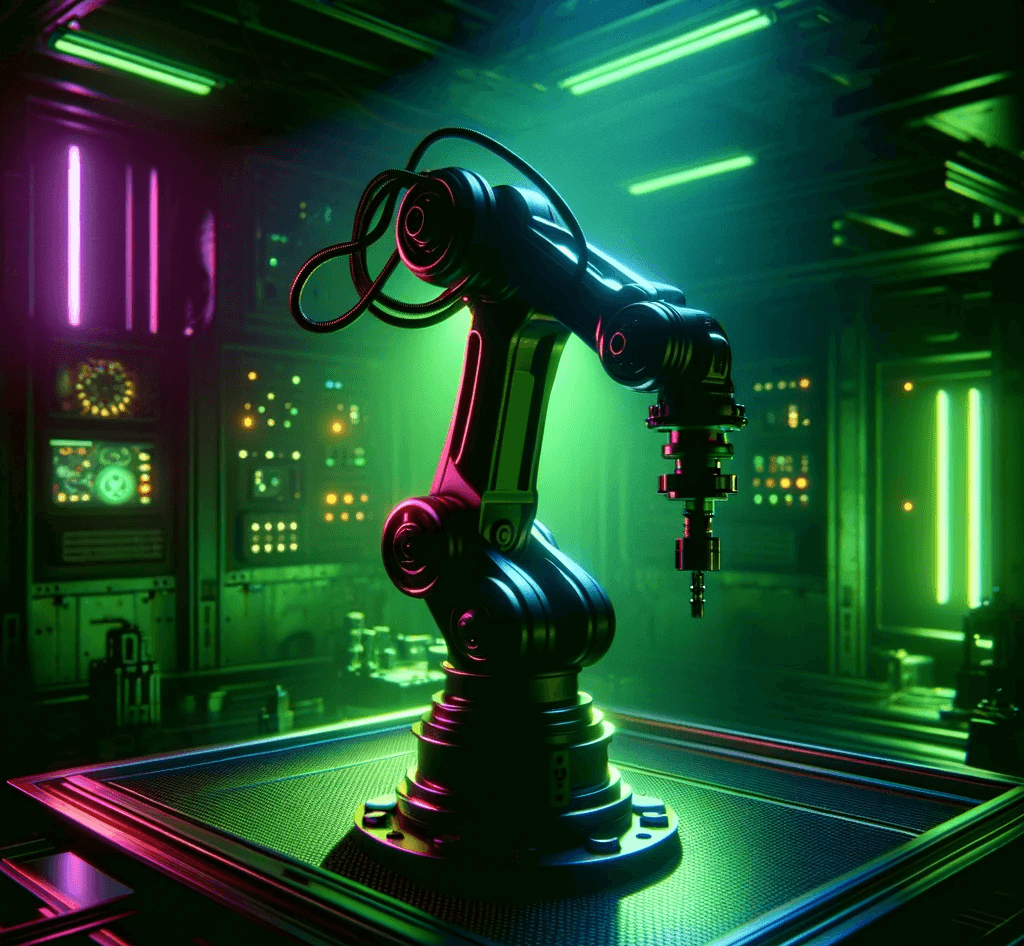7 Ways AI and Automation Will Influence Manufacturing in 2024
In the dynamic landscape of manufacturing, the year 2024 marks a significant leap forward, driven by advancements in Artificial Intelligence (AI) and automation. Drawing from insights across various industry experts and studies, this article explores how these technologies are reshaping the manufacturing sector.
1. AI as a Catalyst for Technological Evolution
AI is poised to be the most impactful technology in manufacturing, influencing every business aspect from predictive insights and task automation to human-machine interaction and content generation. Anu Khare from Oshkosh Corp. views this period as the most thrilling phase of technological evolution since the advent of the internet, stressing that AI will augment every aspect of business operations, much like industrial tools in manufacturing plants.
2. The Resurgence of AR/VR in Manufacturing
Augmented Reality (VR) and Virtual Reality (VR) technologies, initially popular in gaming, are finding substantial applications in manufacturing. These technologies are being used for product design, training operators on dangerous equipment, and facilitating cross-continental collaborations. Despite the initial hype surrounding the industrial metaverse, experts predict a more grounded application of AR and VR in addressing real-world manufacturing challenges.
3. The Imperative of Automation in Addressing Labor Challenges
The manufacturing sector faces a significant labor challenge, with a projected gap of 2.1 million unfilled jobs by 2030. To counter this, the integration of automation in manufacturing processes becomes crucial. Automation not only helps in performing repetitive tasks but also enables existing workers to move into more skilled roles. The Deloitte Global Human Capital Trends Study highlights the importance of reskilling the workforce, with automation playing a key role in this transition.
4. The Integration of AI in Quality Control
AI is revolutionizing quality control in manufacturing. It allows for the identification of defects that might be missed by human inspectors or even robots. Companies like BMW are employing AI for automatic image recognition to enhance the accuracy of their production methods. This integration of AI in quality control ensures higher product quality and faster market time.
5. AI in Supply Chain and Forecasting
AI’s role in supply chain management and forecasting is becoming increasingly vital. It allows for real-time updates and improved decision-making, leading to significant reductions in forecasting errors and operational costs. For instance, Danone Group has integrated Machine Learning into its demand forecasting processes, achieving notable improvements in accuracy and efficiency.
6. Economic and Environmental Benefits of AI in Manufacturing
AI in manufacturing is not just about improving operational efficiency; it also holds the potential for significant economic and environmental benefits. By optimizing energy usage and reducing waste, AI can contribute to sustainable manufacturing practices. The Boston Consulting Group estimates that AI could save between $1.3 trillion and $2.6 trillion in income and cost reductions while simultaneously cutting down greenhouse gas emissions.
7. AI’s Role in Reducing Manufacturing Costs
Manufacturers who have embraced AI and automation have witnessed a growth rate 30% higher than those relying on manual processes. AI facilitates cost reduction through enhanced automation, material cost control, and optimized energy usage, impacting key performance indicators like overall equipment efficiency and labor productivity. The adoption of AI in manufacturing is crucial for cost-effective operations and maintaining a competitive edge.
Summary
In conclusion, as we move into 2024, AI and automation are not just futuristic concepts but essential tools that are reshaping the manufacturing landscape. From quality control and labor management to cost reduction and sustainable practices, these technologies are integral to the modern manufacturing ecosystem, driving efficiency, innovation, and growth.
Our Services
Industries We Serve
Related Posts
View all posts-
EmployersCareer Seekers
The State of the U.S. Manufacturing Workforce (2025–2026 Benchmark Report)
U.S. manufacturing workforce statistics compiled from BLS, NAM, and Deloitte, with employment and labor trend insights for 2025–2026.
-
EmployersCareer Seekers
Manufacturing Conferences in 2026: Your Complete List
We’ve scoured the web and compiled a list of all manufacturing conferences in 2026 to keep you informed and connected in the industry.
-
EmployersCareer Seekers
What Is a 9/80 Work Schedule? (Engineering & Manufacturing)
What is a 9/80 work schedule? Learn how it works with real engineering and manufacturing examples, plus key benefits and drawbacks.

